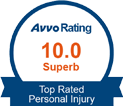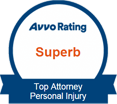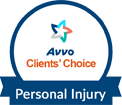Determining liability is a tricky subject in truck accident cases. Unlike most auto accident lawsuits, accidents involving trucks often involve multiple parties. You must pinpoint every party at fault if you want to receive the maximum compensation for the damages and injuries sustained from a truck accident. A thorough investigation is required to ascertain who is to blame and how their conduct contributed to the incident. This blog goes into greater detail about determining liability in a truck accident.
Understanding Who is At Fault
Accidents involving semi trucks or big rigs are thoroughly examined by state agencies, local police, and (on some occasions) the National Transportation Safety Board. Due to the enormous number of potential casualties in truck accidents and the significant nature of commercial trucks, authorities have a major interest in preventing catastrophic errors and safety violations from occurring again.
Trucking companies and their insurance providers are also interested in minimizing accidents. However, these investigations are more concerned with the financial consequences than the safety concerns. Each of these parties has the expertise and resources necessary to determine the precise cause of the truck accident. However, take into account that none of these parties has your best interests at heart. Hiring an attorney after such an incident occurs is crucial to safeguard your legal rights.
One of the most crucial roles a lawyer can play is to investigate and probe the incident on your behalf. Your attorney can determine who is to blame for the accident and demand just compensation for your case based on the accident reports from the authorities like the NTSB, the retrieved evidence, and expert witness testimony. To show proof of liability in any truck accident personal injury claim, you would have to pick between strict liability, negligence, vicarious liability, and joint liability. Here is a more in-depth review of these concepts:
Strict Liability
In strict liability, negligence isn't a decisive factor. The courts can hold a party liable for a truck accident even though it made no mistakes that resulted in the accident's occurrence. Under the strict liability theory, the courts can find truck designers, manufacturers, and product chain distributors accountable for the accident. Strict liability claims are mainly predicated on faulty parts like accelerator pedals, brakes, engines, cargo straps, and tires.
Negligence
According to California's negligence provisions, an injured person or driver can file a claim against the at-fault individual if he or she acted carelessly and his or her negligent actions contributed significantly to the accident's occurrence. As the victim, you must demonstrate to the courts how the at-fault person or party was irresponsible or negligent. For example, a truck driver could engage in aggressive driving or speeding, resulting in an accident that caused injuries. Alternatively, perhaps the trucking company overloaded the vehicle and destabilized it, resulting in an accident that caused you or a loved one to sustain injuries. To prove negligence in a truck accident claim, you should demonstrate three factors. These elements are as follows:
- The offender is obligated to pay you a Duty of Care
- The accused neglected their responsibility
- It's this violation that caused you to sustain the injuries
The phrase "duty of care" refers to the legal responsibility that an individual owes to another person. For example, a truck driver has a legal responsibility to pay attention to blind spots, manage the truck's speed, and drive with reasonable caution. Trucking companies are obligated to provide their motorists with the required training, keep their trucks in excellent condition, and allow their motorists to have rest breaks.
Vicarious Liability
Employers are held vicariously accountable for the gross negligence that their employees do while carrying out their obligations under California's Respondeat Superior legislation. The main objective of the vicarious liability theory is to make sure that the victim receives fair compensation for his or her loss. An employer is regarded to be in a better place to compensate wounded victims than an employee.
Trucking companies could be held vicariously accountable for the negligent actions of their truck drivers in a truck accident case. For example, a trucker who was speeding could personally be at fault for the collision, but the trucking company would be liable for paying the plaintiff's losses.
Joint Liability
The courts can declare multiple offenders jointly accountable for the truck accident. Imagine a truck driver who is impaired and speeding an overloaded truck with faulty brakes. In this case, the driver would be held accountable for his or her negligence in operating the truck while impaired by either alcohol or drugs. The court would also consider the trucking company responsible for overloading the truck, as well as the truck manufacturer, for fitting faulty brakes. As a result, the plaintiff will receive compensation in part from the truck driver, the trucking firm, and the truck manufacturer.
Parties At Fault In a Truck Accident Case
The findings of your attorney's investigation will almost certainly show that more than one party is to blame for the truck accident. The following are common parties in truck accident cases:
-
Truck Driver
Like in any accident claim, the driver in question immediately becomes the first party to be investigated. This is particularly true for commercial truckers, who are certified and trained to operate large rigs and are bound to far more stringent laws and regulations than other motorists. The most frequent causes of truck driver-caused accidents that could make drivers liable include:
-
Reckless Driving
This involves engaging in a variety of actions such as speeding at unnecessary road points like junctions, and ignoring red lights and stop signs, to name a few.
-
Excessive Speeding
According to the Federal Motor Carrier Safety Administration (FMCSA), excessive speeding is defined as driving at speeds that exceed the legal speed limit of 15 miles per hour or more. Violation of this rule is deemed a "serious crime" that could lead to a commercial truck driver's license being revoked.
-
Tailgating
Trucks and big rigs need more space to brake and stop completely. When the truck is fully loaded, this distance increases. If a semi-truck follows another car too closely, it would not be able to stop in time.
-
Driving Under the Influence
A truck driver is prohibited by law from "using alcohol, being under the influence of alcohol, or having any measurable alcohol concentration while driving, being on duty or in control of a commercial vehicle." This ban also applies to the usage of drugs. Despite this, drugs and alcohol consumption continues to be a concern in the trucking field, often leading to some of the most fatal accidents.
-
Improper Change of Lanes
18-wheelers are big vehicles with similarly large blind spots. When a truck driver fails to identify a blind spot before changing a lane, nearby motorists could be placed in grave danger.
-
Distracted Driving
It's against the law for truck drivers to use their phones while operating a vehicle unless it's an emergency. Nonetheless, texting and phone use are key contributors to truck accidents. Several other distractions, like drinking, eating, smoking, listening to the radio, and so on, could also raise the chances of an accident.
Truck drivers can also be held liable for such tragedies if they neglect to assess their truck and cargo before embarking on a journey. Ignoring or missing items on pre-trip inspection checklists could lead to mechanical malfunctions and failures, which can lead to an accident. Meanwhile, unsecured cargo increases the chances of the truck driver losing control and thus causing the truck to tip over or jackknife.
Infringement of these and other regulations constitutes a breach of the truck driver's duties. You must prove the driver's negligence for your truck accident case to succeed. A skilled attorney can gather critical evidence to prove that the truck driver was negligent and that you're eligible for compensation.
-
The Truck's Manufacturer
Companies that build, design, and sell trucks and parts must verify that their trucks and parts are stable and safe, and operate per the industry standards. Serious accidents may occur when components on a semi-truck fail. You should be able to prove that the big rig or one of its parts was faulty before you can sue the manufacturer. This requires a thorough inspection of the truck. Unfortunately, trucking firms often seize the trucks immediately after an accident. Your lawyer can request that the carrier retains the vehicle for independent inspection. Automotive engineering specialists can examine the vehicle for any faults and testify on how a problematic design or component should function.
-
The Trucking Companies
Some truckers operate as independent contractors. In this instance, you would be limited to suing the negligent owner-driver in the event of an accident. However, trucking companies employ many drivers to transport goods. The driver's job status could have a significant effect on your claim. If the truck driver was acting in the course of his/her duty when the accident occurred, then the trucking company would also be held accountable for your damages and injuries.
The employer is legally liable when his or her employee injures another person. Trucking firms are aware of this, which is why truck drivers are not often misclassified as freelance contractors to avoid accountability for accidents. Truck accident attorneys are equipped with the skills and resources necessary to investigate employment records and prove that the at-fault motorist is an employee.
Other forms of negligence that led to the truck accident could be identified through an investigation into the firm's records, such as:
- Absence of drug, alcohol, and medical condition testing
- Failure to dismiss a motorist who commits a grave or serious crime
- Inappropriate hiring practices
- Drivers are not being trained
- Putting pressure on truck drivers to break federal hours of duty laws, can result in truck accidents due to fatigue
- Errors in the maintenance and repair of trucks owned by the company
Trucking companies have a reputation for trying to mitigate accident claims in any way they can. Large trucking companies often engage their investigators, who, predictably, often conclude that the incident was not the company's fault. The company's representatives (along with their insurance companies) would also make efforts to persuade you to resolve the case for less, speak out against your interests, and more. Partnering with a professional truck accident lawyer is important to avoid falling victim to these deceptive techniques.
-
The Shipping or Loading Firm
Semi-trucks should be properly packed to guarantee that the load is well-balanced and secure. This responsibility is split between the firm that loads the goods into the truck before transportation and the truck driver, who is in charge of inspecting the goods throughout the journey. Unevenly distributed weight or excess loads are the root cause of truck accidents. The shipping firm could be held liable for negligent loading, the trucker for failing to assess the cargo, or a combination of the two parties.
-
A Mechanic Or a Service Station
Accidents caused by mechanical problems can also occur as a result of poor truck maintenance. The trucking firm, owner-operator, or a combination of the two parties could be in charge of seeing to it that the vehicle is kept in good working condition. However, the service provider or mechanic hired to work on the trucks could also be held liable for accidents brought on by negligent repairs and services.
Inspection, as with truck problems, is required to ascertain if the truck was properly serviced before the incident. It is also advisable to look through maintenance and repair logs to see if any planned maintenance or other tasks have been skipped. An expert's testimony on how the truck's state differs from what constitutes a safe working condition for a semi-truck can be used to prove the fault.
-
Other Parties
It's often challenging to ascertain exactly what happened in the aftermath of a truck accident. A thorough inquiry could uncover that one or multiple other parties are to blame. For instance, if another motorist cuts off the truck or drifts across lanes, the truck driver would lose control of the vehicle as a result. This would lead to an accident with the other car, or it would just be a "near miss" that results in the crash you're in. If so, you could be eligible to file a case against the motorist of another car.
Another potential risk for truck accidents is dangerous roads. Highways and other heavily trafficked roads often suffer severe damage, which can result in accidents if not well planned and maintained. Your attorney can determine which government body is in charge of maintaining the roadway and file a lawsuit on your behalf if the roadway's defect was a contributing factor to the truck accident.
Truck Accident Liability and Commercial Driver's License (CDL) Violations
Commercial Driver's License (CDL) holders are trained and certified to operate Commercial Motor Vehicles. All CDL motorists are subject to strict regulations, and breaking those rules could lead to fines or the loss of their commercial driver's license. Both criminal and driving-related offenses can result in disqualification. Therefore, companies must conduct comprehensive background checks on potential recruits and ensure that they receive top-notch training. If the driver commits two serious offenses within three years, he or she could be suspended for no more than 60 days. If the motorist commits three serious offenses within three years, then he or she would be disqualified for 120 days.
What If You Were In Part Responsible For The Truck Accident?
In some cases, the operator of a passenger vehicle is partly to blame for a semi-truck accident. Perhaps you were driving slightly faster than the legal limit or had to make an emergency stop. In most jurisdictions, your fault does not bar you from receiving compensation for the damages sustained. However, if you are partially at fault, your compensation would be reduced in proportion to your part of the fault.
California, for example, follows the rule of comparative negligence. Victims who are partially at fault would receive a portion of the losses which they would otherwise be entitled to, as long as their liability for the accident doesn't outweigh that of all other parties in question. You will likely face criticism from truckers, trucking firms, and their insurance providers for the accident. If this technique is successful, you could receive less compensation than you deserve or even lose the privilege to file a claim. Due to this, it's important to engage a truck accident attorney as soon as possible following the accident.
Find a Personal Injury Lawyer Near Me
After being involved in a truck accident, you should not consider an early compensation offer from an insurance provider without first discussing it with a car accident attorney. Most insurance firms' main goal is to reimburse you with as little money as possible so that they can gain huge profits. Our attorneys at The Personal Injury Attorney Law Firm have years of experience pursuing financial compensation for victims of truck accidents throughout California. Our legal team has the resources to thoroughly examine the truck accident and identify all accountable parties. Feel free to reach out to us at 800-492-6718.
 800-492-6718
800-492-6718







